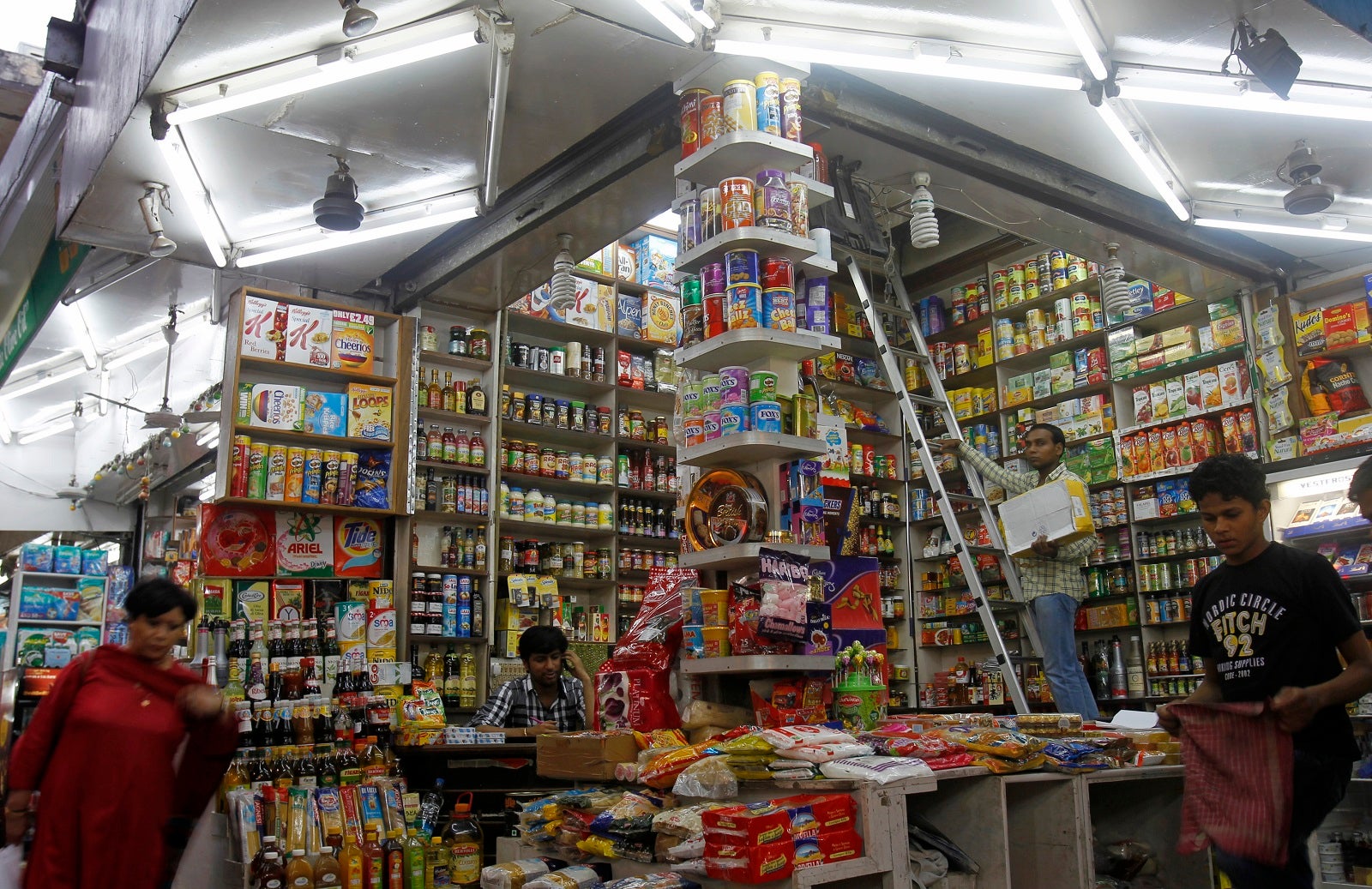India’s struggling consumer goods sector pins its hopes on Budget 2020
India’s slump-hit consumer goods sector is high on hope in the run-up to the union budget for financial year 2021.


India’s slump-hit consumer goods sector is high on hope in the run-up to the union budget for financial year 2021.
Fast moving consumer goods (FMCG) firms expect finance minister Nirmala Sitharaman to announce measures to increase consumers’ disposable incomes, and smoothen the rough edges of the goods and services tax (GST), on Feb. 1.
The FMCG sector, where sales growth fell to 7.3% in October-December 2019, compared with 15.7% a year ago, is in dire need of policy support.
“Indian FMCG witnessed slower growth last year owing to factors such as dampened consumer demand, lower farm incomes, and liquidity constraints,” said Anshu Budhraja, CEO of Amway India, the local arm of the Michigan-based FMCG giant.
Market leader Hindustan Unilever Limited (HUL) has resorted to several rounds of price cuts to arrest the slump. In October last year, the firm slashed prices of various home and personal care products by 10-12%. In July, too, it had slashed prices of its Lux, Lifebuoy, and Dove soap brands by 4-6%.
Homegrown majors like Marico and Emami are also struggling to grow sales.
Here’s a wish list from the sector:
Fix GST
There is an urgent need to reduce the heavy GST burden faced by FMCG firms, claim experts.
“High GST rates on mass consumption items has hit sales. Items like detergents and shampoos are under the upper GST tax slab of 18%,” said Madhur Singhal, leader in finance sector and managing director, Praxis Global Alliance, a Gurugram-based market research agency.
In categories like ayurvedic products, GST is levied at 12%, compared with 7-10% before the scheme was introduced. “Rationalising GST on healthcare supplements from 18% to 5% will be a welcome move, considering a holistic healthcare system has economic value,” said Amway’s Budhraja.
Multiple GST tax slabs (5%, 12%, 18%, and 28%) also complicates taxation and leads to disputes between FMCG firms and the tax authorities, according to PwC India (pdf).
Boost rural consumption
Rural consumption, which accounts for 36% of overall FMCG sales in India, is at its lowest in seven years.
Short of funds, wholesale and small retailers in rural areas are not stocking up on inventory forcing, consumer goods companies to enter into direct distribution. “Slowdown in rural consumption and liquidity challenges faced by our distribution partners are two pain points,” said Sameer Shah, head-finance (India and SAARC) and investor relations at Godrej Consumer Products Limited (GCPL).
To arrest the rural slowdown, Sitharaman will have to announce some big bang stimulus measures. “The government could incur higher expenditure in 2020-21, amid subdued private consumption and investment,” said Madan Sabnavis, chief economist at Mumbai-based Care Ratings.
The government could consider increasing the cash benefits under the existing Pradhan Mantri Kisan Samman Nidhi, a scheme promising an annual assured income of Rs6,000 ($84.5) for farmers who own up to 2 hectares of land. “Such a move will provide more disposable income in the hands of farmers, encouraging higher spending,” said Care Ratings in a note on Jan. 22.
Generate employment
The ongoing stress in India’s automobile and manufacturing sectors has hit the rural economy as migrant workers from the hinterland have lost their jobs. “Weak economic growth has resulted in lower job creation and therefore reduced consumer spending,” said Vahishta Unwalla, research analyst, Care Ratings.
To reverse the rural distress, Sitharaman can allocate more funds to India’s rural employment programme under the Mahatma Gandhi National Rural Employment Guarantee Act (MGNREGA).
“Although allocation towards MGNREGA declined marginally in the 2019-20 budget, we believe there will be an around 10% increase in allocation in the upcoming budget as it is linked directly with rural employment,” said Unwalla.
Personal income tax cuts
The government should look at reducing personal tax rates in line with the corporate tax cut announced in September 2019, recommends Dabur India chairman Amit Burman. “This would put more disposable income in the pockets of consumers, thereby fuelling consumerism,” he told The Economic Times.
The company, best known for its Vatika shampoo and Real juice, derives 45-47% of domestic sales from rural markets.
“Reduction in personal income tax would also provide a reasonable impetus to our economy,” said Shah of GCPL.
Even a small relief in personal tax rates will go a long way, say experts. “The basic exemption limit of Rs2.5 lakhs may be revised to Rs3.5 lakhs or higher. The government should rationalise higher tax slabs as well,” said Parizad Sirwalla, national leader, global mobility services tax at Gurugram-based consultancy firm KPMG India.
Any turnaround in the FMCG sector is going to be slow, caution experts, given the Indian economy is forecast to grow at its slowest pace (5%) in 11 years this financial year. “The slowdown is expected to persist in the FMCG sector until the third quarter of FY2021,” said Unwalla of Care Ratings.
A lot depends on whether Sitharaman is willing to dole out big incentives.